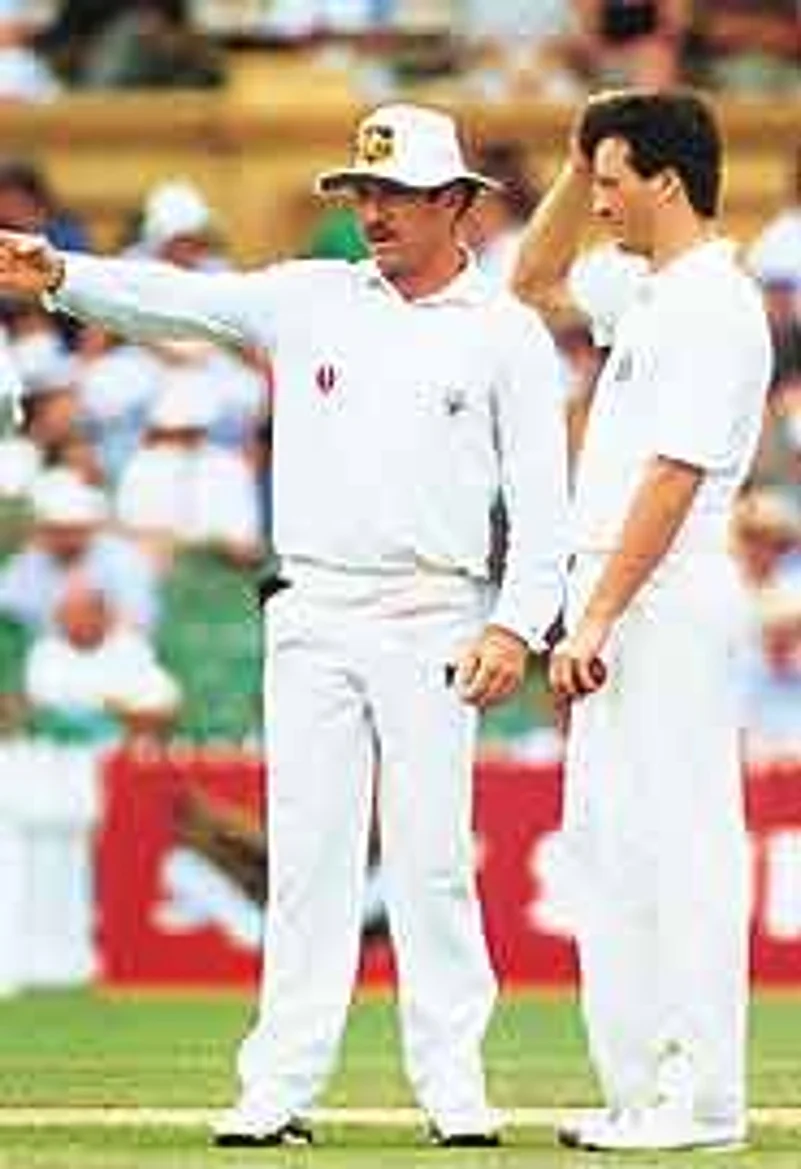Twenty years ago, Australian cricket was going through a bleak period. A rash of retirements followed by the defection of many other experienced cricketers to the rebel tours in South Africa meant that the cupboard was suddenly bereft of talent. In the following season, the Australian selection panel went through 30 or more players in search of a fresh harvest. Not surprisingly, success was elusive.
The Australian selectors of the time then sat down and made some serious decisions, the positive effects of which are still being felt. The first was that there were not that many good players in the country and the second was that a decision needed to be made on who the good players were and then give them time to develop at the top level. As it is for everyone to see, Australian cricket has hardly looked back.

Allan Border was the captain at that stage and the players who were identified as the ones with the talent and the spirit to give him support and stability were David Boon, Geoff Marsh and Steve Waugh. Shortly after, Ian Healy was added to this group. There you got the core of Australian cricket for the next full decade.
Success did not come immediately but gradually a different air was noticeable around the team. The nervous and timid approach by the players gradually grew into a belief and confidence that they could beat any opposition in the world and Allan Border started to believe in his group. Once they won back the Ashes in England in 1989 they went from strength to strength.
The lessons of those lean years have been well learnt. It is often said that it is harder to get out of an Australian team than it is to get into the team in the first place. This should be so for, as I have said, there are not that many players who have what it takes to be a success. When you find players who can succeed in the cauldron of international cricket, it is best not to discard them lightly.
Not every team has enjoyed the stability afforded by a strong selection panel. At various times, England, India and Pakistan have suffered from poor selection strategy. Currently, England is benefiting from a more stable policy, as is India, although that might become tenuous if they have an extended losing streak. Pakistan, on the other hand, might just benefit from a run of success.
Pakistan is currently on a mini roll after having defeated India for the second time in as many one-day internationals. It is amazing what a difference a few wins can make. Having been under pressure early in the year following a rather insipid performance in both the one-day series and the Test matches against India, the boot is now on the other foot and Ganguly’s team is feeling the heat in the wake of the two straight one-day losses to the arch enemy.
Why the sudden change? Actually, I don’t think much has changed and, given the fickle nature of public opinion, I doubt that anyone in the Pakistan camp is feeling too smug about the situation. They will be as aware as anyone that any team is only as good as its next performance and a few bad results can suddenly reverse the direction of the blow torch of public and media attention.
What the latest Pakistan win in Amstelveen will mean for Inzamam-ul-Haq and his team is that it will have bought some more time to build a successful unit. Woolmer, on taking over the coaching role, insisted on having a strong say in selection and fought hard for Shoaib Akhtar to be retained and for Shahid Afridi to be reinstated to the squad for the Videocon Cup. Any coach in his right mind will have taken a similar stance.
One thing that can undermine any coach’s position is poor selection policy and recent history in Pakistan is rife with this particular affliction. It appeared that the only policy that the selection panel had was that there was no policy. Any selector, coach or captain who thinks that they have more than 30 players capable of playing international cricket should automatically have their selector’s licence revoked. Not even Australia, in this era of seemingly endless riches of playing talent, can boast that many quality players.
In fact, I doubt the list stretches beyond 20 players with all the requirements to succeed at the top level in any country at any given time. For, talent alone does not guarantee success in the higher echelons of the game, as the pages of the Wisden Almanac will show. Such intangibles as temperament, personality, attitude and desire are equally as important ingredients to success as physical ability.
Most successful teams have coincided with strong selection policy while most good players have benefited from the Wisdom of Solomon at some time or other. Even good players need time to find out what international cricket is all about and a revolving door policy on selection only breeds doubt and uncertainty and rarely, if ever, leads to success on the field.


























